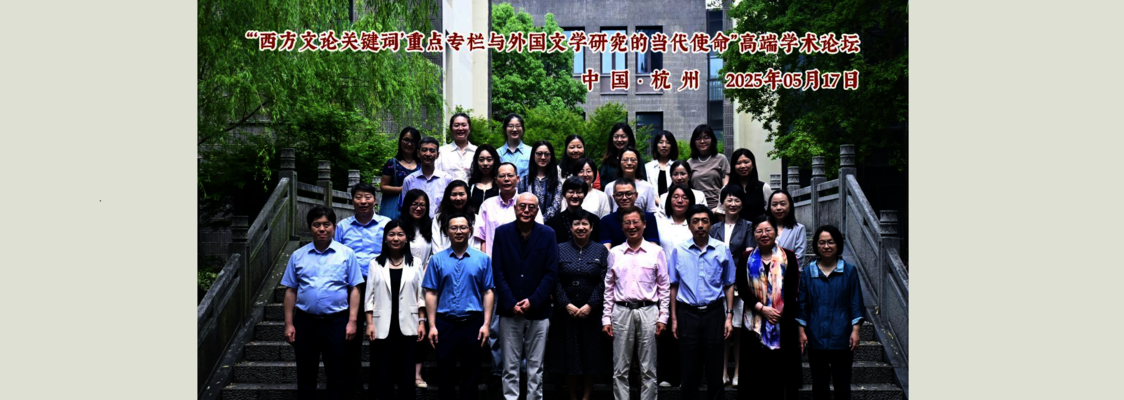- Shaaban Robert: toward an ecopoetics of Kisw
- 重绘小说世界:中国当代科幻小说英译探讨
- 面向大语言模型的中国马克思主义哲学话语国际化
- 外国文学研究中的前沿与热点问题
- 新时代外国文学研究转型的四个面向
- A Pattern Language图案语言
- Going to the Well:Community and Creativity为
- 新形势下如何推进我国与加勒比国家的关系
- Travelling Memories: Entangled Histories of
- AI时代的口译教育
- Hungarian Literary History and Laszlo Kraszn
- AI时代翻译及翻译研究的出路——文化视角的反思
- 地方高校如何发挥特色优势培养区域地方高校如何
- Research Trends, Theoretical Relevance, and
- 外国文学研究的话语自觉——以非洲文学为中心
- 话语互动论中的辩证唯物主义思想
- 芥川龙之介对法国文学的接受:《马脚》再考
- 重现1921年芥川龙之介的西湖游历
- 翻译的“忠诚”:以葛浩文为例谈翻译的危机
- 悟之弥细 究之弥深:基于汉译的选题思考
时间:2025年11月5日9:40
地点:图书馆118室英美文学书库
主讲内容:
In this talk, I will overview interaction ritual theory in an accessible way, and will present recent developments in this theory which I presented in Kadar (2024). I will also overview why interaction ritual is a particularly insightful concept in the study of politeness and impoliteness. I will argue that ritual allows the scholar to systematically describe various phenomena which are important in our daily social interaction and which have not received sufficient attention in the mainstream of politeness research. I will draw case studies from a variety of contexts from Chinese. At the end of the talk, I will discuss why and how building on interaction ritual theory is useful for early-career scholars who wish to disseminate their research in leading academic journals.
主讲人简介:
Dániel Z. Kádár (D.Litt, D.Litt, DSc, FHEA, PhD) is Ordinary Member of Academia Europea. He is Chair Professor and International Director of the Center for International Cooperation and Disciplinary Innovation (‘111Center’) at Dalian University of Foreign Languages, China. He is also Research Professor at the ELTE Hungarian Research Institute for Linguistics, Hungary. He is author of many books, published with publishing houses of international standing such as Cambridge University Press. He is co-editor of Contrastive Pragmatics: A Cross-Disciplinary Journal. His research interests include the pragmatics of ritual, linguistic politeness, contrastive pragmatics and historical pragmatics, and Chinese linguistics.







